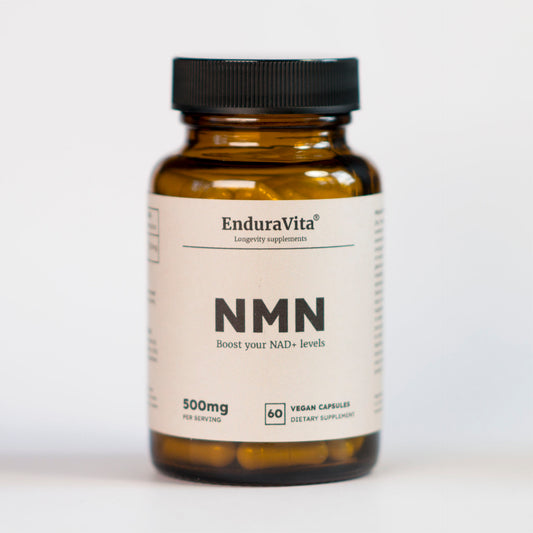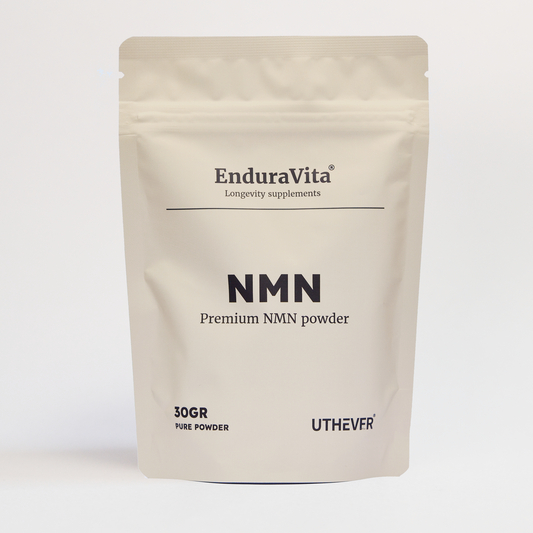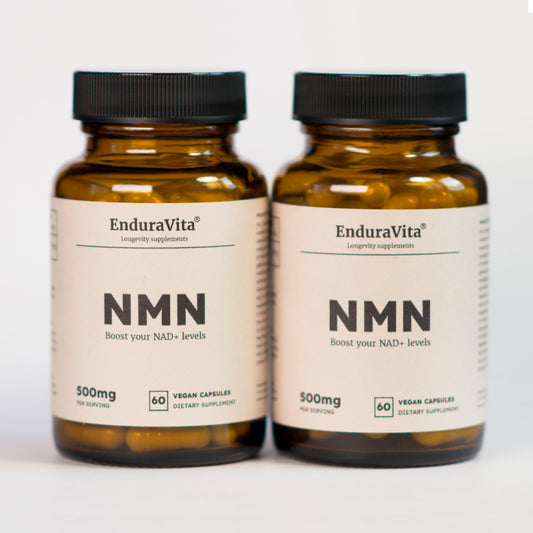
NMN in Alzheimer's
Alzheimer is a progressive neurodegenerative disorder that leads to memory loss and cognitive decline. It is the most common form of dementia, and in the Netherlands, it was estimated by Alzheimer Nederland in 2021 that approximately 290,000 people were living with dementia, a large portion of whom have been diagnosed with Alzheimer's.
Although there is currently no cure for Alzheimer's, there have been promising studies focusing on slowing the disease. One of these studies focuses on the effects of Nicotinamide Mononucleotide (NMN). These studies offer hope for future treatment methods.
What is Alzheimer's
Alzheimer is a progressive neurodegenerative disorder that primarily affects the elderly. It is the most common form of dementia and is characterized by a gradual decline in memory, cognitive abilities, and behavior. As the disease progresses, it becomes increasingly difficult for people to perform daily activities, which has a significant impact on their quality of life.
The characteristic features of Alzheimer's are the accumulation of amyloid plaques and tau tangles in the brain. These accumulations disrupt communication between brain cells and ultimately lead to the death of these cells and loss of brain tissue. This process underlies the severe cognitive decline that is characteristic of the disease.
Genetic predisposition also plays a role in the development of Alzheimer's, with certain genes potentially increasing the risk of the disease. Although there is currently no cure for Alzheimer's, there are treatments that can alleviate symptoms and slow the progression of the disease. These treatments include medications such as cholinesterase inhibitors and NMDA antagonists, which can make the symptoms manageable and improve the quality of life for patients.
Scientific research on NMN and Alzheimer's
Recent scientific research has shown promising results regarding the effects of NMN on Alzheimer's. Various studies have explored the potential of NMN to improve cognitive functions and slow the progression of the disease.
A study published on PubMed investigated the effects of NMN on mouse models with Alzheimer's. This research showed that NMN protects neuronal health by reducing oxidative stress and inflammation, both crucial factors in the treatment of Alzheimer's. Additionally, the study indicated that NMN can reduce the formation of amyloid plaques, a hallmark of Alzheimer's, which helps slow the progression of the disease.
Another study suggested that NMN may contribute to improving memory and learning ability in mice with Alzheimer's by promoting synaptic plasticity, which is crucial for cognitive functions. This effect highlights the potential of NMN as a treatment option to slow down cognitive decline in Alzheimer's.
Conclusion
The studies on the effects of NMN on Alzheimer's look promising, but it is important to emphasize that further research is needed before definitive conclusions can be drawn. Scientists have seen hopeful results in mice, only when the same results are achieved in the human body can a conclusion be drawn.
Even though there is still much to discover, it can certainly be worthwhile to NMN to try if you are dealing with Alzheimer's. Although it does not offer a guaranteed solution, it can complement existing treatments and possibly contribute to slowing the progression of the disease.










